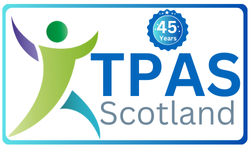Tenant Voice Scotland Survey Results
Survey Results
We are really pleased to announce the results from our first National Tenant Voice survey
The first Tenant Voice Survey (TVS) gathered views on tenant experiences during the Covid 19 pandemic with a focus on relationships with their social landlords.
We heard from tenants across Scotland’s social housing sector
Key feedback from our online survey:
Landlords doing a good job
Although experiences vary significantly, TVS members reported they are generally satisfied with their landlords support and response to the pandemic.
75% said they have been contacted to see how they were getting on and offered support by their landlord.
50% of these contacts had been by phone, with letter and email being the other common methods used. These were their preferred methods.
Comments about this contact were generally positive, however, tenants said that contact was really good when COVID 19 hit and over time this contact has reduced.
Tenants said they would have appreciated more efforts, as time went by, like follow up phone calls.
Paying rent and security
84% said they had no concerns about the future security of their tenancy
94% had no concerns relating to their ability to pay rent. These tenants’ concerns focussed on accessing shops, community facilities and impacts on mental health and mood
Communication
There has been less use of digital options than might have been expected. Landlords have been using tried tested ways to communicate with tenants.
Information & Advice
There was an average rating of 7 out of 10 for:
• Information, advice and help to help pay rent
• Information received on impact/changes to services
Over two thirds said they had received information on how COVID 19 was affecting services by hardcopy, online newsletters and landlord’s web site. However, there is significant interest in receiving information by electronic newsletters, email and making a digital transformation.
Community Support
On community issues community spirit was rated as 6 out of 10 and 75% had not noticed any change to the levels of anti-social behaviour
